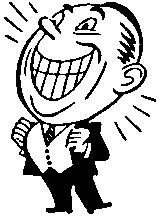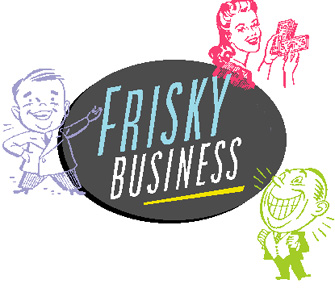McAleer may not be overly impressed, but other judges are. Arts Patron Magazine survives the investment round. The following week, it advances from the semifinals to the final round. Later one night at the conclusion of a banquet at Bell Harbor Conference Center on Elliott Bay, the winner is announced. Nicholas and friends collected the big check--and something even more valuable than the real $25,000 in startup funds it represents.

Professor Gary S. Hansen, director of the Program in
Entrepreneurship and Innovation
"The money's trivial compared to the exposure and contacts they made during the event," says Gary S. Hansen, director of the Program in Entrepreneurship and Innovation.
For the Arts Patron partners--all M.B.A. candidates at the UW--as well as members of the 34 other teams, the Business Plan Competition fostered the kind of real-world exchanges "you couldn't buy (for) $25,000," Hansen says.
Nicholas agrees.
"It changed our outlook on the business plan," says Nicholas, who with his partners plans to launch Arts Patron in Seattle later this year and eventually publish editions in other cities. "Even though we knew it was a good idea, having that sort of interest has impressed upon us that it really was quite a good idea.
"I've also been impressed by how the business community has reacted to the Business Plan Competition," continues Nicholas. "I didn't realize that so many people out there knew it was happening and were interested in the result."
University officials also are pleased, but not entirely surprised. After
all, what better place to  inject entrepreneurship into the curriculum
than the hometown of companies like Microsoft, Amazon.com and Costco? And
before them, Nordstrom, Eddie Bauer and REI?
inject entrepreneurship into the curriculum
than the hometown of companies like Microsoft, Amazon.com and Costco? And
before them, Nordstrom, Eddie Bauer and REI?
"The personality of this region is one of entrepreneurship," says William D. Bradford, retiring dean of the UW Business School. "This is an area where businesses that have been created from scratch are a foundation of our economy."
But that wasn't always the case. Or at least it wasn't embraced.
When Doug Overturf graduated from the UW with a business administration degree in 1968, the University was "cranking out people to go to work in big corporations," he recalls.
There was "nothing" like PEI at that time, he says, noting the curriculum didn't even stress sales skills, let alone entrepreneurship.
Founder and co-president of medical equipment distributor CoMedical Inc., Overturf serves on PEI's 20-member advisory board. He helped judge the semi-final round of the competition.
Like entries in the NCAA basketball tournament, the 16 semifinalists were ranked according to how much PEI money they had earned, then seeded into one of four groups.
The four teams in each group bared their business plans, including financial statements, to separate panels of judges. Each panel then picked the strongest team in its group to advance to the "Final Four" championship round later that afternoon.
During the final round, the four teams described their companies to seven
more judges--all founders and CEOs of one or more companies and acknowledged
"master" entrepreneurs. They included David Giuliani of Optiva, named the nation's 1997 Entrepreneur
of the Year by Ernst & Young,
and Findley, who launched a tradition of having the previous year's winner
help judge the finalists.
